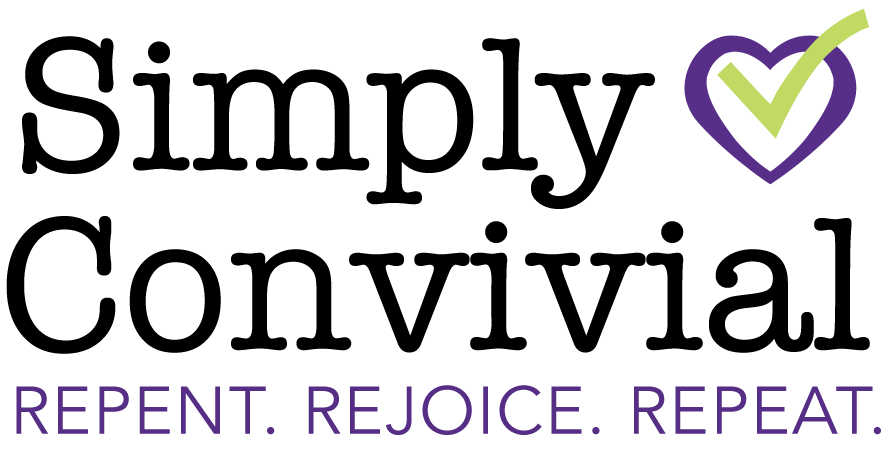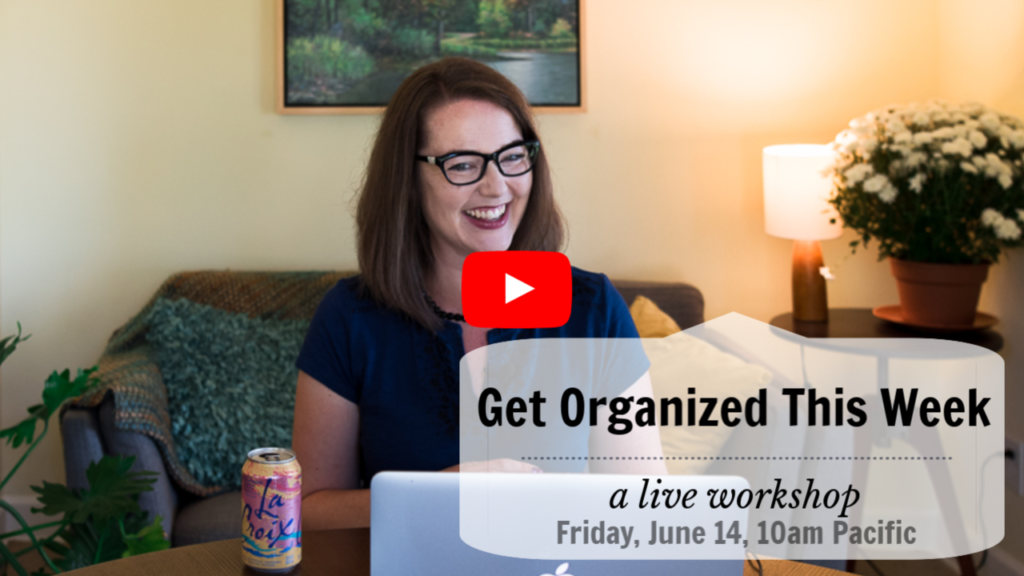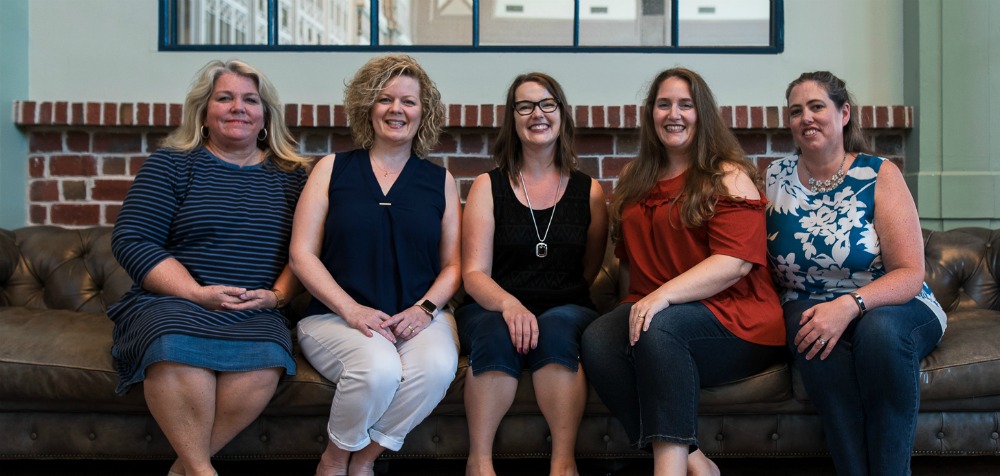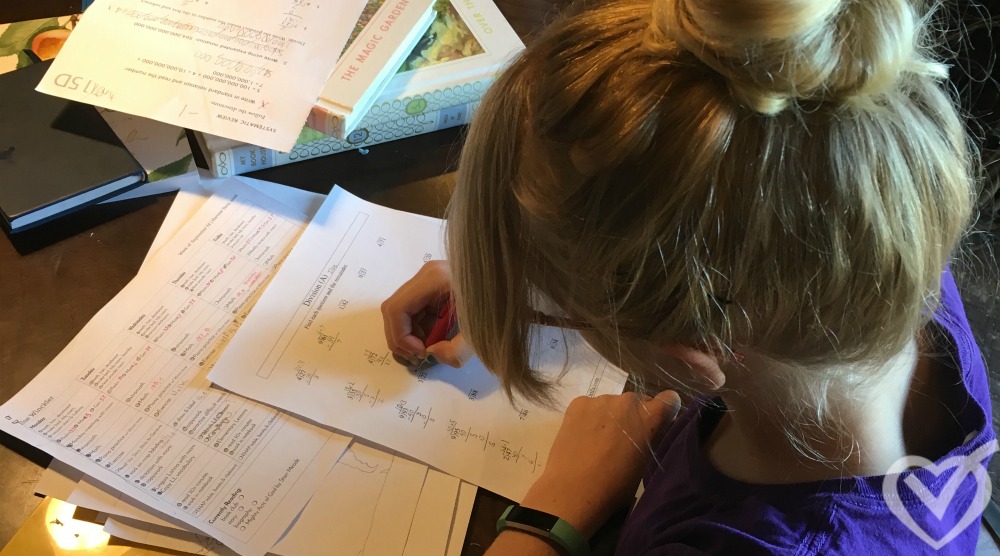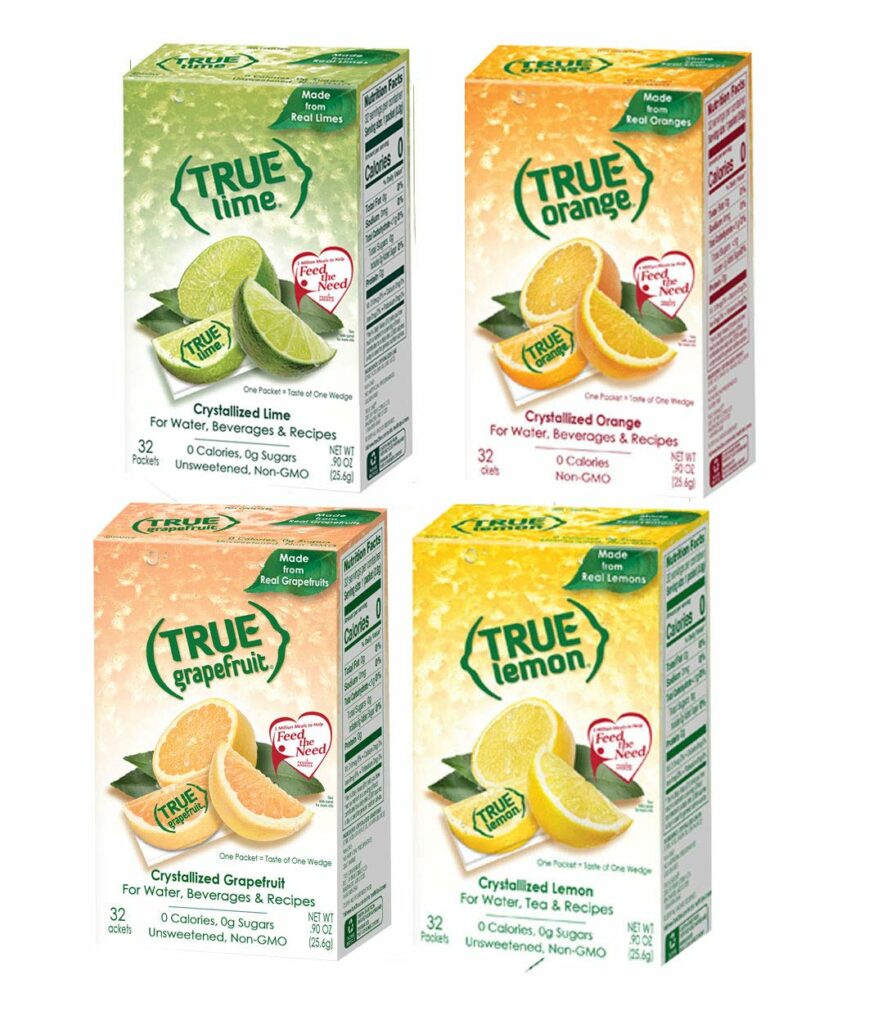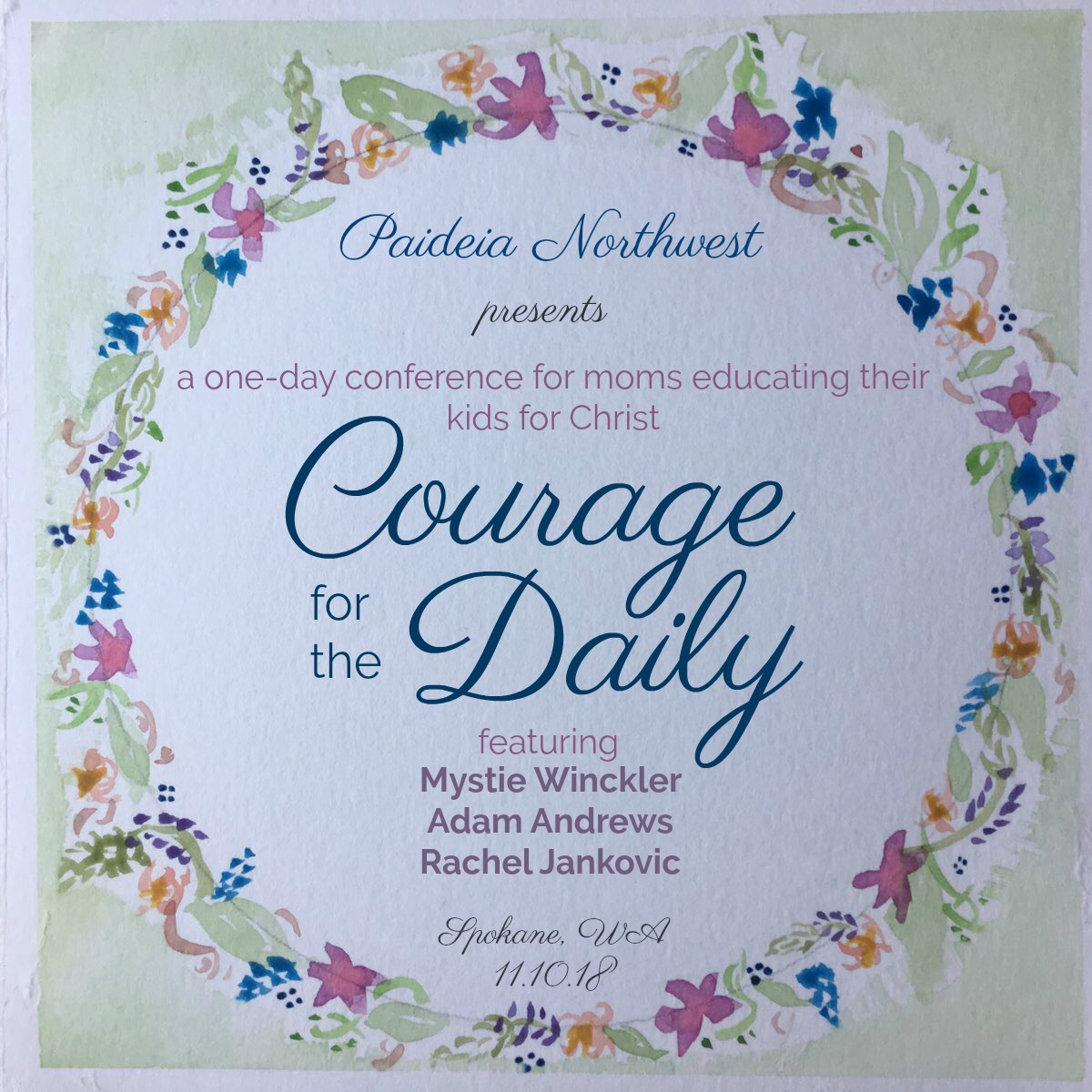True confessions: I am a bad journaller. Yet in 2018 I started jotting down things I learned worth sharing, and sometimes even attaching a picture. The archives are collected here. Entries from the current calendar year can be found sprinkled throughout the blog.
Table of contents
- February 2020 – recovery, clutter, loneliness, Evernote, theology
- January 2020 – laundry, math, Plato, read-aloud, tables
- Five Things I Learned in 2019: irony, word-of-the-year, weight, reading, Bible
- July 2019 – digestion, odor eaters, bummer, hours, starting
- June 2019 – unplugging, Zion, teens, vacuuming, slow starts
- May 2019 – college, day out, BRC, habits, coconut milk (and cake)
- April 2019 – anti-fragile, mottos, vision, personality, classical
- March 2019 – Spring, validation, freezer cooking, goals, time
- February 2019 – pie crust, cold, NCFCA, robo-vac, simplifying
- November 2018 – speaking, planning, purple, freezer cooking, webinar
- October 2018 – hospitality, appointments, PEACE, hiatus, routines
- September 2018 – Cindy Rollins, inspection, menu plan, driver’s ed, True pack
- August 2018 – notebooks, lesson plans, IG, habits, superzoom
- July 2018 – budgeting, summer term, speaking, Work the Plan, anniversary
February 2020 – recovery, clutter, loneliness, Evernote, theology
Every so often it’s good to stop and reflect and assess. Rather than continuing to barrel forward, we can pause and learn about our own needs, our own patterns, our own situations – then make choices and plans that are smarter and more effective.
Here are some things I learned in February.
1. After multiple intense days with little sleep, I need to plan for a do-nothing week.
In February I went to a speech & debate tournament in Portland with my two older boys, carpooling with friends. For 2 days, 3 nights, we had 14+ hour busy days in a packed church. We drove home on Sunday, straight into the church parking lot to attend church (which is the spiritual rest we need, whether or not we want the social interaction). After that, we had a family meal with extended family at our house.
I was still able to take a nap Sunday before evening service, and I slept 9+ hours that night, so I assumed – wrongly – that I was caught up on sleep and ready for a strong week. The following week was break week, and I had a list of things I wanted to tackle (of course).
And I was dragging all week long.
We have another tournament coming up, and on top of the tournament there are two other events the following two days I’m helping with. Four days of being in charge of event functioning in a crowd. And, again, break week follows.
So, I’m planning on dragging all that break week. There’s nothing wrong with that – what’s wrong is my expectation that a single nap will make me good as new.
Instead, I will not plan on making any progress on anything beyond what is necessary (my 6 week menu plan, some pantry & fridge decluttering, and preparing for our final term). I will plan on reading lots that break week – with herbal tea and a warm blanket – and making sure I get to bed early.
Expectations are key.
2. Clutter is sometimes needed.
My husband has been working on redoing our master bathroom on Saturdays and in the evenings, for which I am very grateful.
But big projects like that means there will be clutter. Temporarily, everything from the bathroom is displaced and not where it belongs. It becomes clutter in the bedroom. Temporarily, the tools and debris from the project must live near the work.
It was a good reminder that clutter is not only inevitable, but sometimes necessary. The time to declutter will come when the project is over.
The main goal is not to have no clutter, to always be decluttered, to keep everything neat and tidy all the time. The main goal is to keep life flowing smoothly and be a good manager and steward of the resources (and projects) we have in front of us. The main goal is to live with gratitude and use our abilities and space and stuff abundantly to the glory of God – and that means mess. The time to clean will come, but the fact of mess doesn’t mean there’s a problem.
This is a good reminder during our month of the declutter challenge.
3. Someday, we will be lonely.
My fourth-born child turned 10 in February. While he was opening his presents, I commented that this means we now only have one child who is not double-digits.
To which my 12-year-old responded, “Yeah, pretty soon time is going to start flying and you’ll be alone.”
Oh, well, yes, I suppose so. Before I know it, that will be the case.
4. I need an Evernote replacement.
I have written extensively in the past about how I have used Evernote as my digital filing cabinet, but my use of the program has dwindled over the last 2 years.
My Evernote disillusionment began setting in as I started using my phone as my portable data machine and my iPad as the place I wanted to quickly pull up school plans or links. The Evernote mobile app is slow to load and clunky to use. It took too long to find what I needed and it never got better. In fact, it seemed to get worse with updates.
So I ended up just not using it.
Last month as I was going through my many brain dumps, I realized that I felt scattered on my projects and responsibilities because I was keeping information in too many places, none of which were reliable because I wasn’t using any particular place consistently.
I realized I did need one single place where information I need lives.
And, on top of being clunky to use, Evernote has had multiple CEOs in the last few years, is not profitable as a company, and thus questionable as a long-term trustworthy place to keep data.
So I used some of that draggy time during break week to research Evernote alternatives that were either native Apple or cross-platform (i.e. I’m not interested in OneNote, but that’s the obvious Evernote replacement).
I almost decided to just go all-in on either Google Keep or Apple Notes, but as I used them, realized they were better for quick and temporary spots (like digital post it notes) rather than a solution for long-term reference (like saved and organized pdfs or book notes and quote collections).
In Simplified Organization Community Coaching, we spent February talking about reference storage as being a thing that we needed. In examining my own set up, I realized that was currently my weak point and it was worth addressing, worth spending the time figuring out, and worth getting set up again.
I am currently in the midst of doing just that, but I will put some more time into setting it up and using it before I share what I’m switching to from Evernote. Stay tuned.
5. Reading theology is grounding.
Much of my reading is connecting around the idea of faith. Our weekly Bible Study (and I’m leading a parallel discussion on Sistership) is reading Francis Schaeffer’s True Spirituality, in school we just read the chapters on the Holy Spirit and faith in Calvin’s Institutes of the Christian Religion, and Matthew Henry’s Commentary on Job (which I’m only halfway through!) also returns again to showing Job’s faith through his trial.
All three point out that faith is in Christ, outside ourselves. Faith is not an internal looking and examining, but an anchor outside ourselves. We lean on, trust in, look to Christ in faith and find peace and assurance in Him, not inside ourselves. All three also tie faith to repentance, which is where faith turns us when we do look at ourselves honestly. Faith and repentance, moment-by-moment, looking to Christ and trusting that He’s leading us onward to eternity with Himself.
Lord, we believe; help our unbelief. Increase our faith each day.
January 2020 – laundry, math, Plato, read-aloud, tables
The first month is in the books, for better or for worse. Just like every other January before, the habits and streaks did not happen. But nevertheless, we persist, killing our perfectionism and not giving up in doing both good and well.
#1. Laundry is relentless.
Just FYI: laundry waits for no mom. And, recall, that life is like laundry. It just keeps going. It will increase, yet seldom does it decrease.
In the last 3 years I’ve tried 5 or 6 different laundry routines: kids doing their own on their day, kids helping with the sorting and putting away while I run the loads, folding on my bed, folding on the couch, tossing laundry straight from the dryer into individual baskets for kids.
Guess what? Each of these works, but none of them changes the relentless nature of laundry. There is no magic bullet routine that keeps the laundry from getting out of control beyond doing it relentlessly.
The workable laundry routine is the one you work. End of story.

#2. A friendly math tutor needs a friendly math student.
So, this year my FJ daughter initiated a term we needed in our homeschool: friendly math tutor.
Instead of asking for math help, she asks for a friendly math tutor. It’s a little reminder to me that I need to come to the table with a smile and a cheerful teacher voice not with “let’s get this done” mode, which sounds like aggressive, mean mom to several of my kids.
However, friendly math tutor has a new requirement before she shows up. Friendly math tutor needs to be met by friendly math student – and that is not only friendly to the tutor, but also friendly to the math.
It’s neither friendly nor tutoring to tell the student the answers. If the student isn’t in friendly, wanting-to-engage-and-learn mode, there’s no point in the tutor being there.
Laps, walks, bike rides, cups of tea or water, piano practice – often the friendly math tutor must send a non-friendly math student to another task before they can meet over the math page.
A, twelve-year-olds.
#3. Plato is entertaining
So, I have a reading assignment. Brandy and I will be recording a Scholé Sisters episode with another friend as a followup to our previous conversation on Socratic Discussion. This friend sent us a message after that episode and said we should read and discuss an actual Socratic dialog as a followup, and we said, “Great idea! We’d love to! What do you recommend?”
The answer: Gorgias (I’m saying “gorgeous,” but I’m probably wrong), wherein Plato shows that rhetoric is flattery and not the way to wisdom or understanding.
So the recommended edition arrived in the mail and sat on my stack and I have avoided it for 2 months. Finally, deadline approaching, I picked it up. And promptly read 15 pages in a sitting (and it’s a thin book!), laughing out loud as I did.
It’s funny, engaging, clear, and interesting.
Honestly, friendly math tutor really needs to pick up some tips and tactics from the master here – and I suppose that was our friend’s point.
Socrates keeps the learning environment and conversation light and amusing and convivial, even while he pulls the rug out from people’s opinions and arguments (or, rather, makes them do it to themselves).
So, pass the word: Read some Plato. It’s not scary.
#4. I enjoy being on the receiving end of reading aloud.
For my Scholé Sisters 5×5 challenge, I would have happily chosen all non-fiction categories. But the point is to keep our reading wide and broad, and that means literature is needed as an anchor.
So, I knew P.G. Wodehouse had to be one of my fiction picks, because we own 3-4 titles I’ve never read (I only allowed myself to pick books we already own) and because I need the laughs.
Picking randomly, I chose “Heart of a Goof” from our shelf. My husband saw my choices on the 5×5 sheet and said, “Hey, that book is actually just some excerpts from The Golf Omnibus. You should read The Golf Omnibus.” Cringing a little only at having to “mess up” my already-written-in-purple-ink list, I accepted what I knew was a solid piece of advice and recommendation. Then, he sealed the deal. He said, “What if I read you a chapter in the evenings?”
My first experience of PG Wodehouse was Matt reading it aloud to me before we were married. We don’t always read aloud together, but when we do, it’s him reading Wodehouse to me. I love it. The only thing better than reading Wodehouse is reading with someone else so you can legitimately laugh out loud together instead of snickering under your breath.
#5. We don’t need clear tables to homeschool.
I, of course, prefer beginning our homeschool days with clear tables and counters and all our supplies where they should be.
This January, that wasn’t possible because our prime working area was also the prime working area for the master bathroom remodel project my husband has underway. Due to weather and temperature and those sorts of things, he couldn’t leave the pieces in progress in the garage. So, we homeschooled around them for a week.
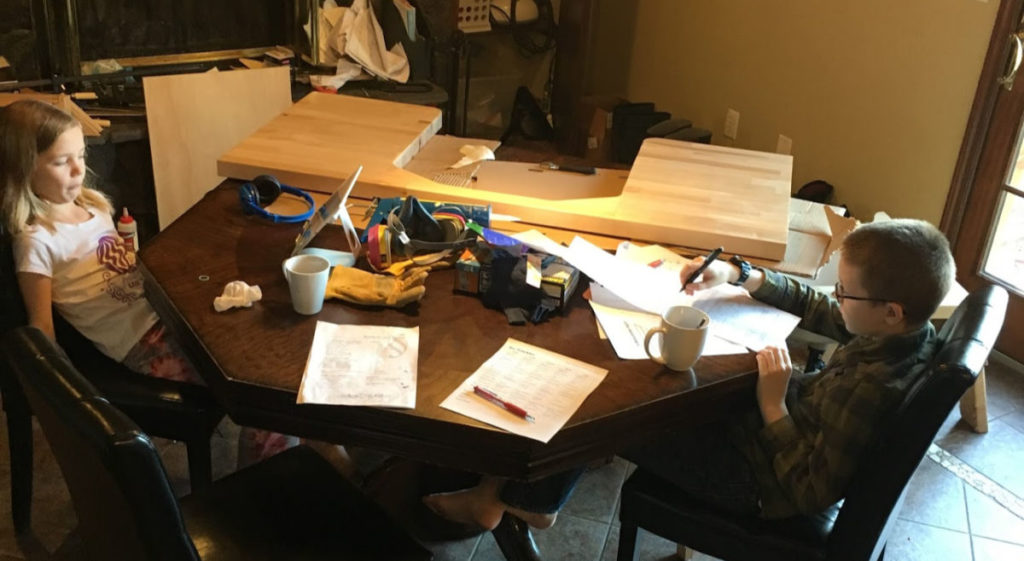
Many of you put up with much more construction chaos or space limitations, but this was ours this month. It was a visible, strong reminder that the situation doesn’t have to be perfect or under my control for us to all keep doing our work faithfully and cheerfully.
Bonus: Read in January
Continued reading:
- Matthew Henry’s Commentary on the Entire Bible (lifetime read)
- Aristotle’s Nicomachean Ethics (philosophy)
- Calvin’s Institutes of the Christian Religion (school reading)
- A Short History of the World by Roberts (history)
- Foundations, R.C. Sproul (audio, theology – finishing from last year)
Finished reading:
- Kenilworth, Sir Walter Scott (novel)
Started reading:
- Mere Discipleship (whim)
- True Spirituality (reread, theology – for our Bible study)
- Gorgias, Plato (philosophy)
- The Golf Omnibus, Wodehouse (novel)
A new year is upon us and before jumping into the freshness of new plans and new goals, it’s good to stop and reflect. We need to move forward in light of where we’re at. We need to make adjustments and changes based on what we know does and doesn’t work – which we will only know if we stop and reflect.
Five Things I Learned in 2019: irony, word-of-the-year, weight, reading, Bible
So here goes – here are 5 things I learned about myself, my goals, and working those goals in 2019. At the end I’ll share how I will use these reflections in 2020 and share a free workshop on goal setting with you.
1. The comments you don’t like to hear as a young mom are told you because they’re true.
It’s kinda funny.
We ask where the older moms are. We say we want advice from older women, like Titus says. But then when the older moms tell us things we get upset, reject it, roll our eyes, and bemoan the fact that there are no wise women to speak into our lives.
What we mean is that there are none saying the things we want to hear.
What if we’re told to listen to older women precisely because they tell us what we don’t want to hear? They are Cassandras, prophetesses, unheeded and rejected.
It’s when you start saying the things your mom told you that you swore as a teen you’d never say that it starts to dawn on you. Then, you find yourself saying to mom with her first baby, “Oh, just enjoy it. It goes by so quickly.”
That’s when you know.
The older women are saying the things they say because they’re true, even if we didn’t think they were helpful. The problem was our own.
So, here, in 2019 with 5 children all school age and 2 teens and interesting people in their own right, I testify that the older women who told you that it gets crazier and busier were right.
To expand and grow and get ready for a full, mature life, these kids need various opportunities. We do limit what we do, but even so – the long days at home with nap times and boredom are gone. The calendar fills up with events for people other than just myself, and logistics becomes a vital skill.
It seemed impossible with a 14 or 15 year-old, especially the first time you are with them behind the wheel, but the older moms were right: When he’s 16 and has a license, you’re going to be so happy and relieved.
Next time an older woman tells you something you don’t think is helpful, just stop and file it away. It’s probably going to be something you’ll find coming out of your own mouth in 10 years.
2. A year is too short for a one-word theme.
So, I’ve always liked the word of the year thing. For those of you who have done it, though, do you find that year after year you’re really just picking synonyms or a different angle on the same actual theme?
Turns out we really don’t change that much in a typical year. Not only do we not wake up Monday morning brand new people just because we bought a new planner or made a new chore chart, we also can’t build all the good habits even over the course of one year.
Five or six years ago I picked the word “Habits” for my word of the year – as if by making that a focus I could master all the good habits I wanted in a year. Ha! Turns out it’s really more of a lifetime theme.
This last year I picked “Prudence,” not really as if one year was all it would take to master the virtue, but as a check against idealism, ambition, and overzealousness.
Really, prudence is the virtue behind almost all the words I’ve chosen over the last decade. So it was just a continuation of my path forward.
So I’m sticking with prudence for what remains of my 30s at least, and perhaps for the entire decade of the 20s.
3. The work I thought would result in weight loss resulted in weight maintenance.
Bummer. I keep working on the goal of losing 5 or 10 or 20 pounds, but for the last 3 years it turns out I’ve actually figured out how to maintain my current weight with a 5 pound swing.
Yes, that means the effort of eating well and moving much is not a project that will never be over. It’s not actually a goal to cross off the list, but a continual building, maintaining, and adjusting of lifelong habits. Health – like laundry and dishes – will always take work and never be cross-off-able.
At one point this year I told myself that this was the last year I was putting weight loss as a goal. It was now or never. It wasn’t now, but the reality is that even if I had met the goal, keeping at that goal would and will take the same habits and same effort to maintain.
So, here’s to another year with a weight-related goal. Sigh.
4. Reading – no matter how much you enjoy it – doesn’t just happen.
It turns out that reading takes time, and between projects and homeschooling and an online business, my reading time has suffered greatly over the last few years.
It takes dedication and time carved out to get in real reading.
It’s not going to happen haphazardly or by default – not anymore. Reading time has to be marked on the weekly time budget – and then followed through on.
I read Intellectual Life in 2018, but I’m applying its advice in 2020. Reserve reading time. Read intentionally and in various modes. Take notes. Trade in desultory and distracting “refreshment” for real ideas that engage the brain rather than dull it.
In 2019 I really have no business calling myself a reader. I am not sure I finished even one dozen books. That must change in 2020.
One way I’m doing that is Scholé Sisters’ 5×5 challenge: 5 books in 5 subject areas. It’s a way to get both broad and deep with our reading, while staying realistic.
5. Read your Bible, pray everyday, and you’ll grow, grow, grow.
Perhaps my reading of books was lacking in 2019, but at least my reading of The Book was not.
At the end of the school year in 2019 I was at about 90% completion of the Bible Reading Challenge. I completed the summer challenge and am now on track with the 2019-2020 school year through-the-Bible reading challenge.
Who knew that a plan to read more Bible daily would be what would stick?
Start halfway! Just pick up and read, right where you’re at. Join the Bible Reading Challenge here.
July 2019 – digestion, odor eaters, bummer, hours, starting
July just whizzed right by – like most months, I suppose. But it’s good to pause and see what the big takeaways are from the month.
1. Constitutions 18 years after 18 differ.
My husband and I celebrated our 18th anniversary in July. He asked for and received permission to take me out just before my 18th birthday (those swing dance lessons at 16 definitely were not dates).
When we would go out to eat before we were married and our first year or two of marriage, we would go to a local Mexican restaurant. We haven’t been there now in at least 8 years – probably longer. So, for our anniversary, we went out to lunch at Casa Chapala again.
Let’s just say that the sentimental restaurant pick won’t happen again.
And it turns out that a huge plate of fried Mexican food sits less easy on the stomach of those pushing 40 than those pushing 20. Who’ve thought?
2. Keep charcoal odor thingies in your car.
Yes, “charcoal odor-eating thingies” is the official term. I forgot to mention this road trip tip last month: I bought these and had 2 of them in the car (and 2 of them at home in the boys’ room) on our week-long road trip with 9 people in the van and I do believe they helped prevent the stale food and non-showered body smell from building up in the car.
They don’t seem quite up to the challenge of keeping a bedroom with three boys fresh, but for the van, they work.
Maybe I just need 8-12 of them in the boys’ room…
3. If you exercise & don’t overeat, you lose weight; if you don’t, well, you don’t.
Filed under: “ugh” and “truths I keep trying to prove wrong but end up proving right.”
Just keep on keeping on.
4. Every hour counts.
For about a week and a half in July I experimented with budgeting my time on a daily basis – doing it the night before on a preformatted daily docket type sheet.
(PS – if you click over to Amazon: at Office Depot this pad was 1/3 the price listed here)
For days that have a lot of coming and going and obligations to fulfill, when you aren’t quite sure how it’s all going to fit, actually fitting it all onto a time budget specific to that day is helpful.
It’s helpful now, too, as I try to figure out our next school year routine. I can experiment with a time budget for the day knowing this is just for today, a temporary iteration, not a “real” plan to try to keep up.
I don’t think it’s something I’ll do everyday, but I like having the pad of list-like pages on hand for those days that seem extra full or those days that have important projects I need to make sure I fit in rather than leave to chance pockets of time.
5. Starting school is hard to do.
This has been the least productive summer school term I think we’ve ever had. I can’t quite pin-point why, except that every single one of us (except the 6-year-old, go figure) has had other things to do most days.
It’s probably just a new phase of life thing, probably has to do with it not being overwhelmingly hot, and probably because I wasn’t quite prepared enough either.
Back to homeschool is hard to do. Still, we have been doing math though very little else, and with the mental energy going only to math, with plenty of fresh air and exercise bookending the math work, those trouble spots and difficulties we were having when we wrapped up last school year seem to have been overcome. So, really, it’s worth it and the summer term hasn’t been a total write-off.
I am always tempted to want to start the school year off with a bang, right on track, but that bang is really the boom of an inevitable boom and bust cycle. Better to gradually introduce everyone to the new work and new routines.
We need to work up to a full routine with conscious effort at habits and consistency, not perfect-from-the-start implementation.
June 2019 – unplugging, Zion, teens, vacuuming, slow starts
Well, we’re more than half done with July, but I still want to share the 5 things I learned in June.
1. Internet-free vacations are a beautiful thing.
Well, our 8-day June vacation was nearly internet-free. My phone was always in my pocket as a camera, but we were out of range for our budget phone plan most of the time – which was quite alright with us.
We took a road trip with my in-laws in our 12-passenger van to the Grand Canyon, stopping at Shoshone Falls in Idaho, Palisade and Bryce in Utah, Lake Powell and the Grand Canyon in Arizona, then back into Utah to visit Zion and back home through Idaho again.
It was over 40 hours of driving (yay for audio books!), but so, so worth it. ????
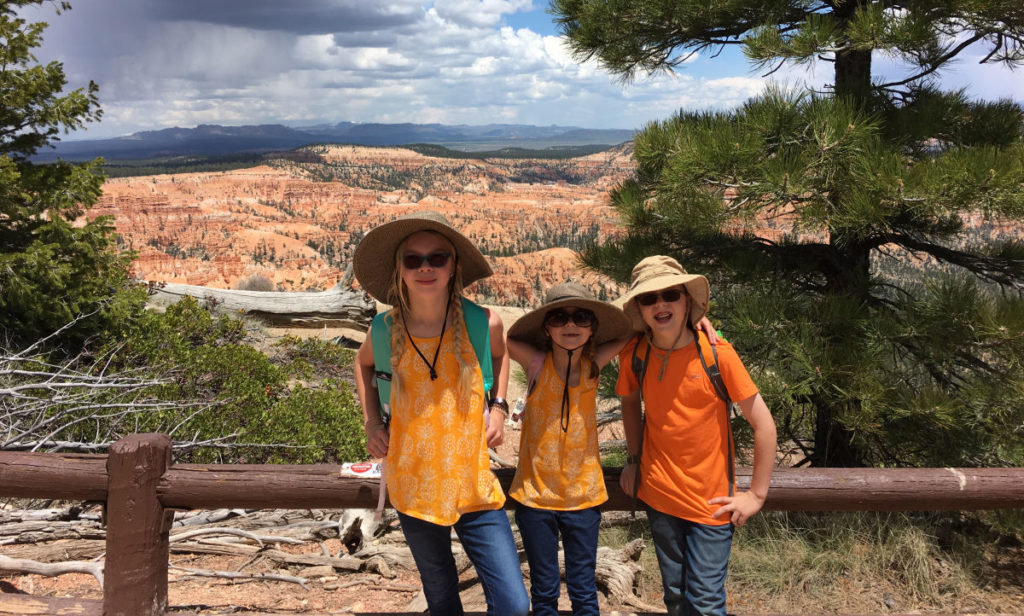
2. When taking the canyon road trip, spend more time in Zion than the Grand Canyon.
We’d been told this by several people before we left, but we will add our vote to the majority opinion: Zion was a more immersive, diverse stop. The Grand Canyon was worth seeing, of course, but there was more to see and experience in Zion – plus, it was much less crowded.
If you’re ever driving through Southern Utah, don’t miss Zion National Park.

3. When tent camping, take teenage boys.
They are worth the food.
Yes, we tent camped 5 nights of our trip, and we not only lived to tell the tale, we decided we needed another tent trip this same summer – except where there are trees.
Between my husband and two teenage boys, though, I felt like I hardly lifted a finger. They can pack up camp for 7 in an hour!
And, because we were able to camp in the parks, we were able to spend more time actually sight seeing and hiking rather than driving to and fro. It was well worth it – though only cheaper if we end up using all the camping gear a few more times. However, I think we will.
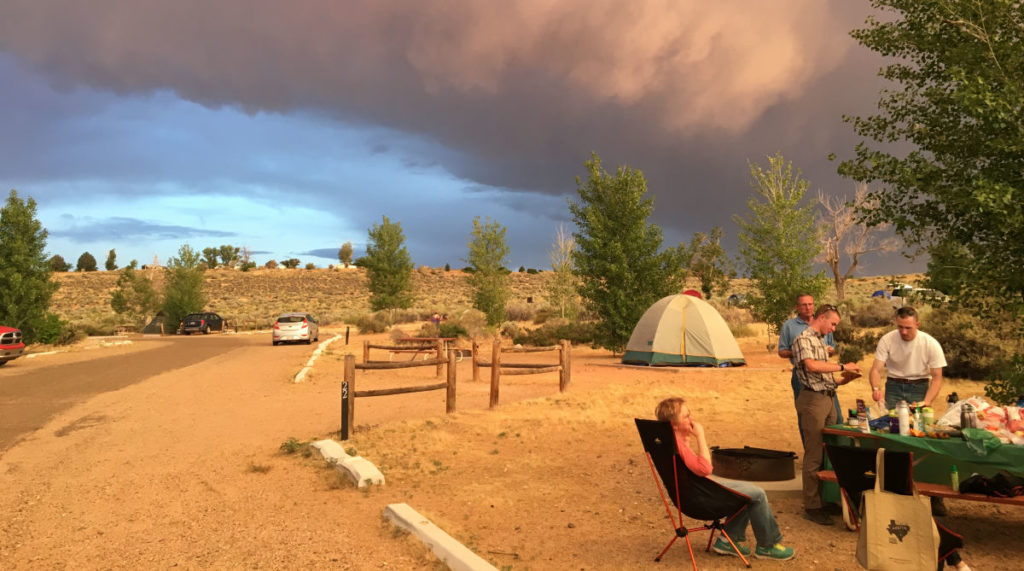
4. Vacuuming is smarter than sweeping.
My husband prefers sweeping to vacuuming because it’s quiet.
However, noise-adverse as I also am (haha, we had 5 kids), I maintain that vacuuming is smarter:
- No matter how much or how little you vacuum, the progress is accomplished. If your vacuuming is interrupted, the room is still better for it. If your sweeping is interrupted, your pile won’t last long and you’ll be back at square one when you come back.
- Vacuuming is 1-step, not 2-step like sweeping.
- Kids can do it
- A robot can do it.
The floors in our house are staying in better shape than has been typical due to 2 vacuums: a lightweight cordless Makita stick vac and a relatively inexpensive (and quieter than most) robot vacuum (Deebot).
With so much dust and crumbing and traffic, our floors need attention daily – often multiple times a day – even with lax standards. At least with these two vacuum options, it doesn’t actually take much of my attention (or time).
5. A slow start is a more effective start.
Supposedly we started school in June. It’s felt a little like a lost cause with the way the summer has unfolded, but it’s actually been a good, slow start.
I like to jump in, whole-hog, but it never works.
The slow summer forces the slow start, which is actually more effective for everyone to get used to their new assignments and ease back into responsibility for tasks.
Some math and some reading – just the basics – and it’s been a good thing.
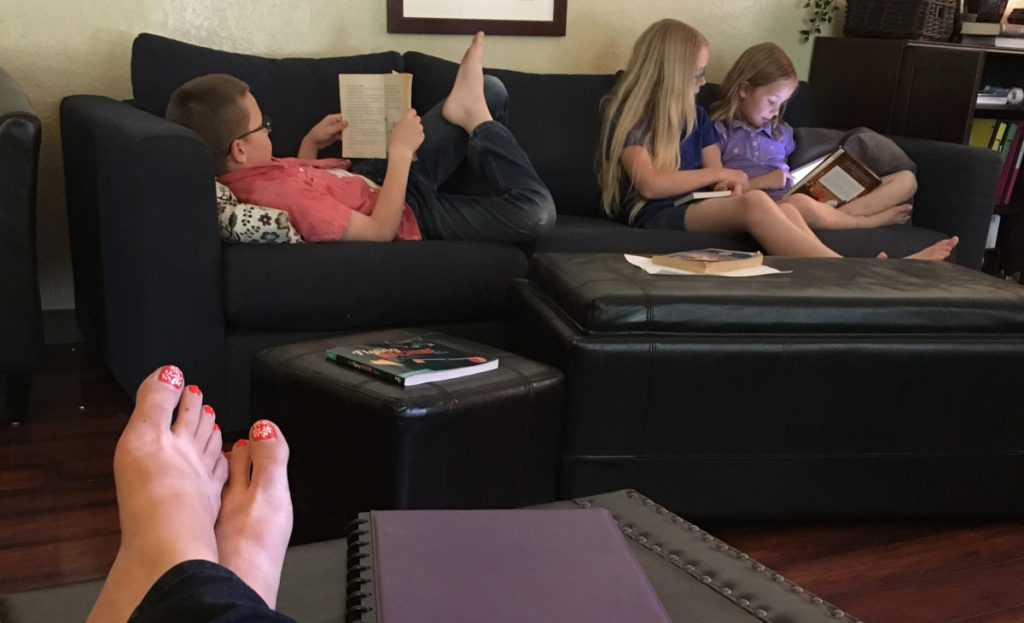
May 2019 – college, day out, BRC, habits, coconut milk (and cake)
It’s another month! Time to pause and reflect and rejoice.
#1 – Dual enrollment paperwork isn’t that bad.
My oldest son will begin the dual enrollment program at the local community college, which means I had to enroll him in the school district. I wasn’t sure what they’d want to see for his high school work or what they’d want for paperwork, but was pleasantly surprised.
He is enrolled, and we have to continue the appropriate bureaucracy through the high school, but he’s listed in their system as homeschooled so we didn’t have to submit any transcripts or work or anything. Hans will still graduate as a homeschool student and with his AA degree (Lord willing), and his test score was proof enough for getting into that next step.
#2 – A teacher’s day out is the best way to end a school year.
We wrapped up our school year, completed our state-mandated testing, and then Kirsti and I headed out of town lickety-split. We met up with our friend Abby and had two days, one night, together hanging out, book shopping, walking, and enjoying some fabulous ice cream.
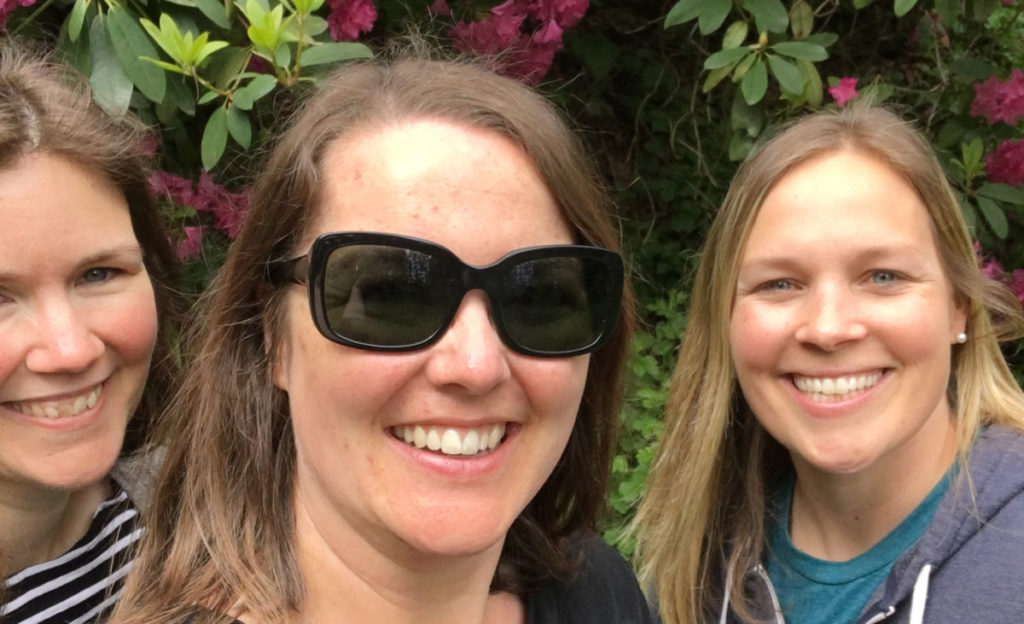
It was just a quick refresher trip, and it worked.
#3 – I can follow a Bible reading plan.
I finished the Bible Reading Challenge!
This is actually the first whole-Bible reading plan I’ve finished. I was trying to think about what was different this time and I came up with two possible reasons:
- I knew several other people doing it, so there was a camaraderie feeling in keeping going even when I got behind.
- It started in September, not January. Every other plan I’ve begun has been a January fresh resolve, which we all know tend to fizzle.
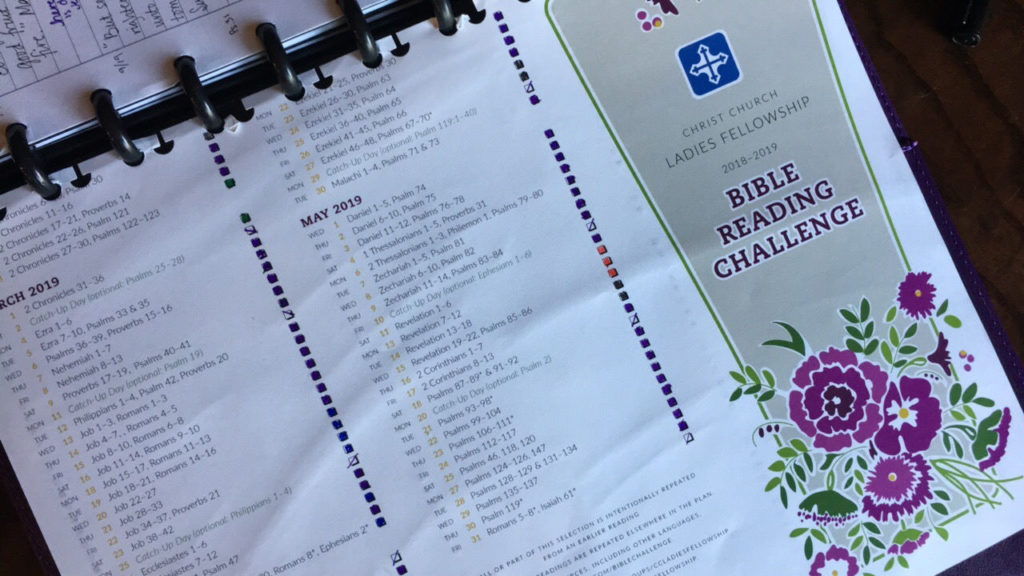
If you want to join the summer reading plan, which I will also be doing, click here to find the printable plan and get started!
#4 – Simplified Organization can be condensed into 5 practices.
Well, it was hard, and it’s not the same, but I needed a quick “Start here” course for new members to take when they first join Simply Convivial Membership, and for any member to run through whenever they need to pick the pieces back up.
At first, I tried boiling it down to 3, but I ended up at 5: 2 attitude practices and 3 planning practices. I opened the doors on it about 10 days ago and the feedback has been good. So next week I’ll do a quick run-through of those 5 practices in a free live workshop: Get Organized This Week.
Come and find out what 5 I picked!
#5 – I will keep coconut milk in my pantry after all.
In May I decluttered my pantry with a hundred or so other women as we worked through Simplified Pantry, which I’ve redone as a 6-week challenge course inside membership, I found a can of coconut milk that had been there for over a year. I don’t even remember why I bought it.
So, I wanted to use it up and get it out of pantry, but my family does not like curry – which is what most people suggested.
My sister-in-law came to the rescue, though, and suggested this recipe: Lemon Coconut Snacking Cake from NY Times.
Not only was it a good use of the coconut milk, it was worth deciding to keep coconut milk in my pantry. Highly recommended!
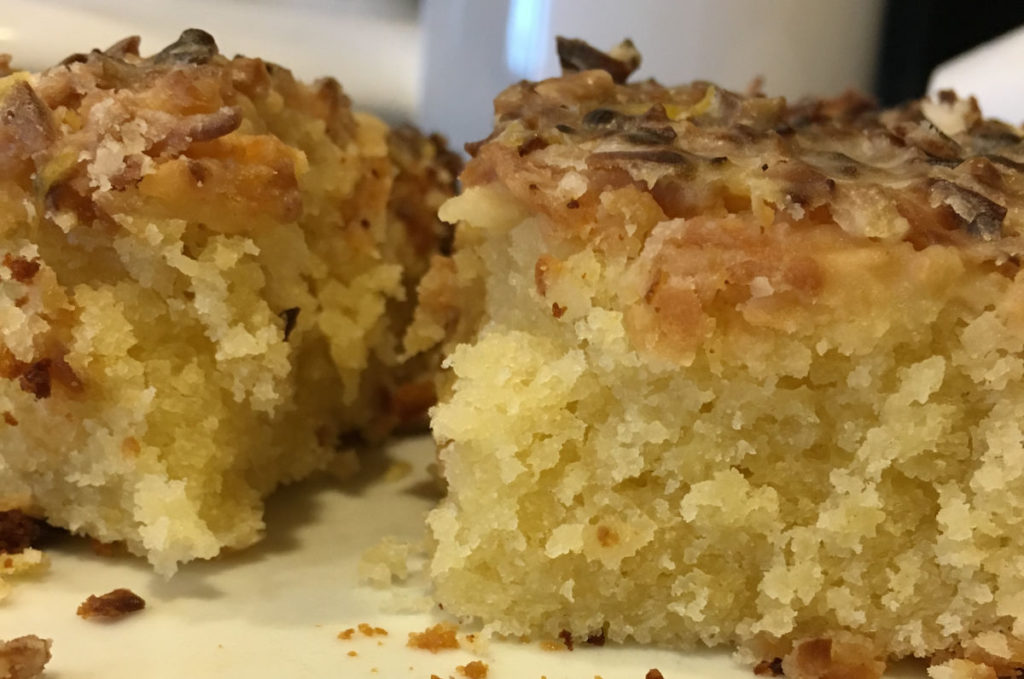
April 2019 – anti-fragile, mottos, vision, personality, classical
We’re smack in the middle of our “verdure” term, which is aptly named. The world outside is greening up and though we are all ready to wind up this school year, we are pushing through for strong growth ourselves in this “growing season.”
One more week after this week of lessons for us, then a testing week, and then on to summer and school planning.
#1 – As Christians, we can be more than resilient or robust – we can be anti-fragile.
Early in April my friend Kirsti and I spent a Friday in Moscow, ID, at the Femina preconference, a part of the Grace Agenda event. Well, ok, we also spent some time thrifting and enjoying great coffee (at Bucer’s) and ice cream (at Panhandle Cone and Coffee).
Rachel Jankovic’s talk was on “Antifragile Mothering,” taking the term from a secular book titled “Antifragile.” Fragile, of course, means easily broken – and too often we women not only are fragile, but actually reinforce fragility by the way we “encourage” one another. Robustness is the opposite, but means rather that it’s unable to be broken – think of a tennis ball hitting a racket as opposed to a Ming vase.
But “anti-fragile” is not robustness. It means actually deriving strength and growth from pain and struggle and trouble. Muscles are anti-fragile. They actually have to be broken down to get stronger.
In Christ, we have the ability to be anti-fragile, Rachel said. Because He’s the one who gives His strength, who orchestrates our growth through adversity, we can have faith in the midst of hardship and grow thereby. We don’t have to be afraid, even of what is beyond us and what is breaking us, because God’s working in all of it and we can take it on – not because we’re all that, but because God is.
The Grace Agenda talks (including preconference talks) will be available for free online at some point – I’ll be sure to share the link in my Saturday digest when that happens.
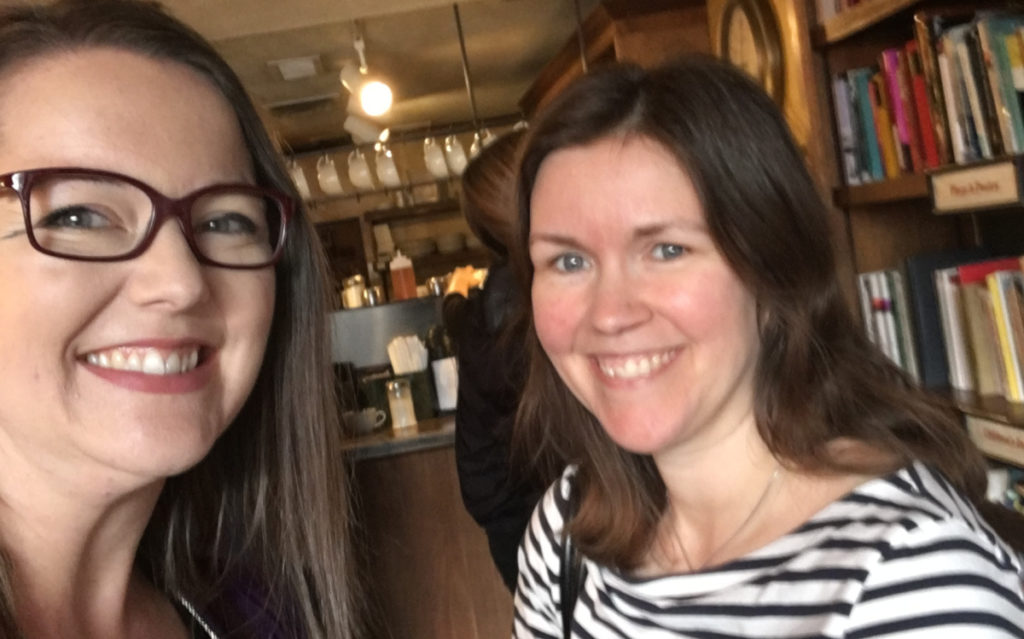
#2 – Personal mottos really help if you can make them catchy enough.
Well, we’re going on 2 years of the same “Lose 10 pounds” project and although there’s only baby-step progress this month, I did find the mindset shift I needed.
Turns out, if you want to lose weight, you shouldn’t eat until you feel like you can’t eat anymore. That’s overeating. “Normal” eating is eating until satisfied. That amount where you are neither hungry nor full and could readily go for a brisk walk right after eating. Eating, in other words, shouldn’t weight you down. Ha! Yeah, I know.
So, as I realize just how much I eat for entertainment and out of boredom or just because it’s there, I need a good mental trick for stopping myself from eating on autopilot.
Mottos are great for parenting small children, and really what this boils down to is parenting and disciplining my own inner two-year-old. So, a motto:
You choose: Full and fat or satisfied and slim.
It goes on my alignment sheet to review in the morning and it’s been helping me gradually make better decisions.
Because this year, I’ve determined, this project gets crossed off my list. Either I accomplish it (and establish the necessary maintenance habits so I keep it) or I forget about it. It’s not going on my 2020 goal list, either way.
#3 – I do have a homeschool vision. What a relief.
I have my own hot little hands on a hard copy of Pam Barnhill’s Plan Your Year (hurry! preorder to get some awesome bonuses!), which is color printed all the way through with the forms right there in the book.
So I’m using the purple Frixion (erasable) pen from the multipack that helped fill kids’ Easter baskets (but, clearly, the purple one was mine), and filling out as I go.
Nothing is worse, though, than staring at a blank page called “Vision” and starting from scratch when you know you’ve already done this work before.
Sure enough, a search through my laptop pulled up the version I wrote out with Pam’s new instructions in Autopilot last year. And – better yet! – I still liked it!
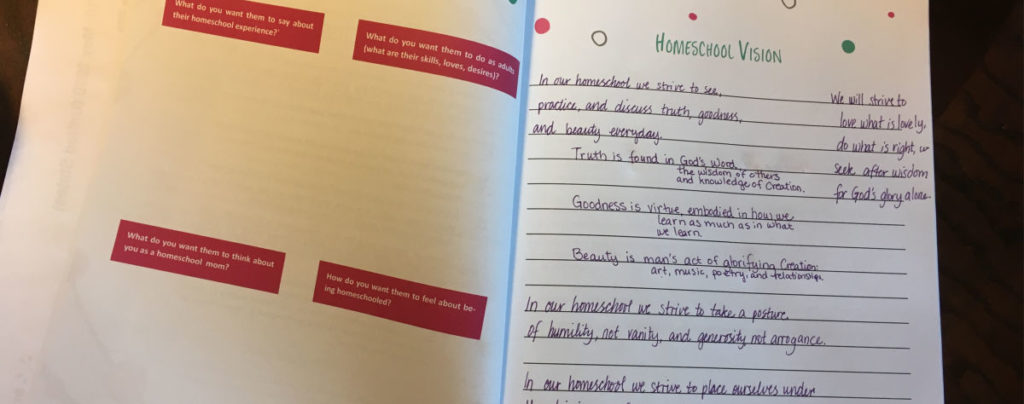
So into the book it went.
#4 – Personality typing is my party trick.
A few people who know me on the internet already knew this, but (being an introvert), I tend to keep to myself until asked. Personality tests on the internet are actually notoriously bad at giving an accurate type – so if you think it’s wrong after you read the description, it probably is.
There’s much more to Myers-Briggs typing (the one that gives you four letters) than 16 distinct types. Really, there are 4 functions, used in differing combinations and in differing ways – these are called “cognitive functions” and each type’s combination is called a “stack.” The 16 types are more like shortcuts, simplifications, to get at the way the functions are working in that particular combination.
Knowing what the cognitive functions are and how they operate makes it easier to diagnose yourself and others after observation as well as listening to answers to more open-ended (rather than binary) questions.
So, anyway, my party trick became known in my “real life” circles – but that was just in time for me to freshen up my ability to speak coherently about it all. Monday I delivered a 2 hour Masterclass inside Read-Aloud Revival Membership called “Discover Your Personality’s Superpower.”
And, while I’m into it again, I’ll be delivering a series of extra Personality workshops inside my own membership in May to add to the Practical Personality Portfolio, which already includes a handy guide and several cheat sheets to help you not only wrap your head around cognitive functions, but use it to type your kids and then use that information to parent, teach, and understand them better.
#5 – I want to be a classical home educator, not a Charlotte Mason educator.
I love Charlotte Mason and I love the ladies who are working her system. There’s plenty of wisdom and solid advice to last a lifetime and direct a complete and wonderful education, no doubt.
But for my own part, I don’t want to stop in the Charlotte Mason culdesac, as full of happy and thriving families as it is.
I’m more interested in reading what Charlotte Mason read, in participating in the Great Conversation with her.
Educational philosophy is my jam – and it’s much bigger and more ancient and also more current than Charlotte Mason’s specific applications. Educational thought is an ever-rolling stream and I want to know where it started (Moses & Plato), where it gained traction (the early church), where it diverged (Enlightenment), and how to make sure we’re in the river that leads to the ocean and not some random dead-end.
(Metaphor stops here – quick).
Anyway, I’m committed to exploring classical homeschooling, knowing that can take many forms – even forms that don’t use classical terminology or labels.
That means exploring what’s been said about education and what that looks like in our homes.
March 2019 – Spring, validation, freezer cooking, goals, time
Another month in the books. March was not quite a whirlwind – more like a, well, march. We could maybe call it a trudge. We kept on keeping on, refusing to give in to the temptation to scrap the entire plan, eat chocolate, and forget about everything.
So, maybe I learned a little lesson in perseverance. I guess.
#1 – Spring was hiding underneath the snow.
We had late snow and lots of it this year, with it still coming down at the first of March. But by the end of March not only was it gone, but the spring bulbs were actually ready and waiting underneath.
We’re still not quite at sandal weather like it seems we ought to be, but at least the winter gear is finally put away.
Of course, spring wasn’t the only thing hiding under the snow, either. As the snow melted, you could tell the layers it fell in by the items that were uncovered. A sled, two hats, a glove, and even a spoon were revealed as the snow caps in our yard ebbed.
#2 – Our homeschool efforts have been validated.
Woot! Our homeschool plans have long been to have our kids do the dual enrollment program in our state with the community college, which is what both my husband and I did, graduating from high school with a 2 year degree.
Indeed, part of the motivation to have my husband take over math a couple years ago was the ensure steady progress so that it wouldn’t be due to our negligence that our kids couldn’t qualify for college math. If they aren’t ready for it, that’s one thing. But it’s also a thing to not be ready because math instruction wasn’t rigorous or diligent enough.
Much to my relief, Hans passed the assessment with flying colors and qualifies for Running Start. His English score was 299/300, he got an 8/8 on his auto-graded essay (on the topic “Does success come from luck or hard work?”), and he can start with PreCalc II at the community college.
So now we just figure out how to enroll him in the school district and the high school….bureaucracy and paperwork, here we come.
#3 – Having meal pieces in the freezer helps a lot.
I know this because this last term I had none. All previous PREP weeks, I had done *some* kitchen work to at least have some cooked ground beef or chicken enchilada filling in the freezer for quick weeknight meals. Last PREP week, however, we were snowed in and I didn’t leave the house, so there were no extra groceries.
Lesson learned: that’s totally a worthwhile use of PREP week time.
So you better be sure that this week I cooked up numerous pounds of ground beef for the freezer. Worth it.
#4 – It’s better to have goals that don’t depend on other people.
It’s funny. Last year I put as a goal to redo all 3 of the bathrooms in our house. Turns out, not only did I very much underestimate the work it would be but it wasn’t even my work to do, so it didn’t belong on my goal list at all.
This year I put things like: frame and hang Melanie’s art, frame my cross stitch piece, and finish cataloguing books. Less dramatic and fun, but realistic and my responsibility.
#5 – It’s easy for the trudge of life to push out reading time.
I didn’t finish any books in March at all. I didn’t spend much time reading. I have no real excuses – my habits, the times I had working for reading, were still infant, and I went into coast mode instead of shepherding them into strong habits.
Now I know. I must be intentional about my reading if I want it to happen.
February 2019 – pie crust, cold, NCFCA, robo-vac, simplifying
Well, long time no blog post. I’ll spare the excuses (some of them you can infer from the rest of this post) and tell you what I’m always telling myself, “Now I’ll be back on track and not miss a planned publish date.” Ha!
Brandy gives a top 5 every week. Anne Bogel shares 7 things she’s learned every month. I, however, only have 5 to share on a monthly basis. In no particular order, here are 5 things I learned in February.
1: I discovered my pie crust recipe.
I’ve been experimenting with pie crust recipes off and on for years now. I even tried to source real lard (not hydrogenated) and, when that didn’t work, render my own (tasted off). For the last year I settled on half butter (for the taste) and half Crisco (for the flaky texture), hydrogenation be ignored.
This year I’ve been on an America’s Test Kitchen kick, though, sparked by my husband’s gifting me a subscription to Cook’s Illustrated. So I pulled out the Cooking School cookbook we gifted our 15yo for his birthday and tried their pie crust – actually following the recipe, which included the note: don’t mix by hand; use a food processor. I split the difference and used my stand mixer. The butter was in smaller pieces this way, and then they also use half vodka for the liquid…yada, yada steam and flakiness science explanation.

Bottom line: Their pie crust is worth following a recipe. It’s tasty and flaky, and only uses 1/4 Crisco. ;) So you can still hate on me if you want. I’ll keep Crisco in my cupboards after all, because pie crust is worth it.
2: It can be cold in March.
Our area in Southeastern Washington State has been colder and snowier in February than it has been in over 100 years. We’ve had more snow and ice than a typical year by a long shot and it has stuck around for nearly a month, which is unheard of.
After such a mild and pleasant December and January, it was a bit of a shocker.
I, for one, was not using my happy light, taking vitamin D or B, or keeping up with getting steps – all things that help me keep my mental clarity when it gets gray. Even with the snow, we haven’t had our typical long stretches of gray, so I was negligent in these things. And by the end of February, my mistake dawned on me, as I wondered why I felt so brain dead.
Even now we have a new coating of snow, at a time where typically the daffodils and forsythia are starting to bloom. But next week, next week it should all melt. In the meantime, I’m reading in front of my light every day.
3: Speech & Debate tournaments eat life with a spoon.
Maybe I can’t blame only the cold and snow for the brain dead nature of February this year.
We ended January with our local tournament, then went to another tournament in Spokane in February. The kids have a blast, but they only perform for 10 minutes 6-9 times the whole 3-4 day event, while as a parent I judged and gave written feedback on 20-30 speeches a day. Between that and living from 7:30am-9pm in a crowded facility with the constant hum of voices, I return to real life bushwhacked.
It’s been a very good experience for our kids, and I’m glad overall that we have done it. However, tournament season takes its toll on home and homeschool – not just because of the time it takes, but because I am depleted for a week afterwards. And of course, after a break in consistency, it’s always tough to reel kids back into the routine.
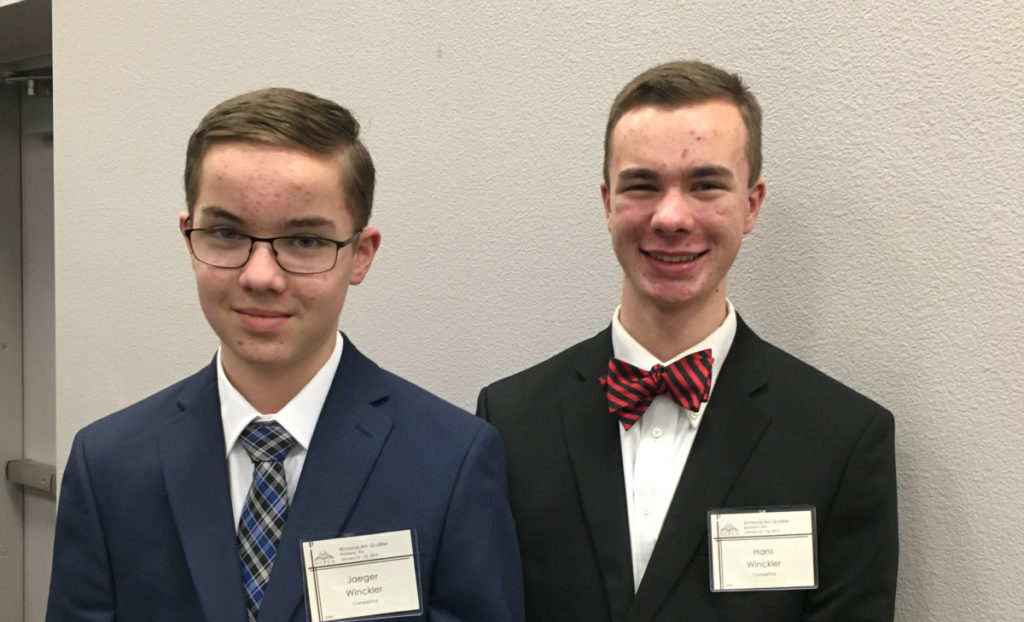
So the jury is still out on the cost-benefit analysis – I think I had better run the analysis a bit farther removed from the experience (not to mention that most analysis done in February is flawed).
4: Robot vacuums actually do work.
Ok, but this is my big happy for the month. I have been asking around about information on robot vacuums this year, thinking I might take the plunge. The versions Costco carries run $500-$600, so I was hesitant but still curious. Then I got a tip, passed to me through Brandy from her sister-in-law: The Deebot N79S is 1) not too noisy 2) does a good job 3) is way less expensive. I looked at it on Target.com and not only was it 1/3 of Costco’s Roomba model, on top of that it was 40% off! I still thought on it over a weekend and of course when I came back ready to take the plunge it was no longer on sale. But Amazon’s price still reflected the same deal: 40% off! So I jumped on it there and got it more than two days later (see above: too much snow).
And I love it! It’s not so noisy that we can’t do Morning Time when it’s working in the next room or tutor math while it’s humming along. It’s not quiet, but it’s not disruptively loud. And it works. It takes it longer to clean the floor than it would a person, but it does do the job. I even set it going on Sunday just before we left for church and came home not only with unanticipated guests, but to a clean floor. Score.
I’m sold. I’m glad I didn’t go with a pricier model. I feel much more comfortable in this price range for this sort of tool, and with this cost-benefit analysis, I am happy.
5: I need to simplify more, but simplifying is work.
The other big part of my February was preparing and opening Simply Convivial Membership.
After opening, closing, and starting the 6-month Community Coaching program in December and January, I realized the way my courses and programs had unfolded over time was too complicated and difficult to explain to someone trying to decide what to buy or not buy. I also hated that I was always sending sales emails, but sales emails are primarily informational – and there were too many things to try to explain and inform, and too hard to keep track of who wanted to know about what. Not only that, but the “upgrades” in software I was starting to unroll turned out to be clunky and not do what I had hoped they would do. Sigh.
When I considered ways to simplify, I landed upon a solution to all these (and other) issues: Membership. One product. Everything in one place. A low enough price that people could pop in, be motivated to work through what they want to work through, and manage their own coming and going as they like. No double-checking who bought what or who can do what – you’re a member? it’s yours. Need home routine help? Here’s Sweep and Smile, anytime. Not sure if you need Simplified Organization or Work the Plan? Here’s both, integrated and non-contradictory or repetitive. The week’s troubleshooting session link is sent to…everyone.
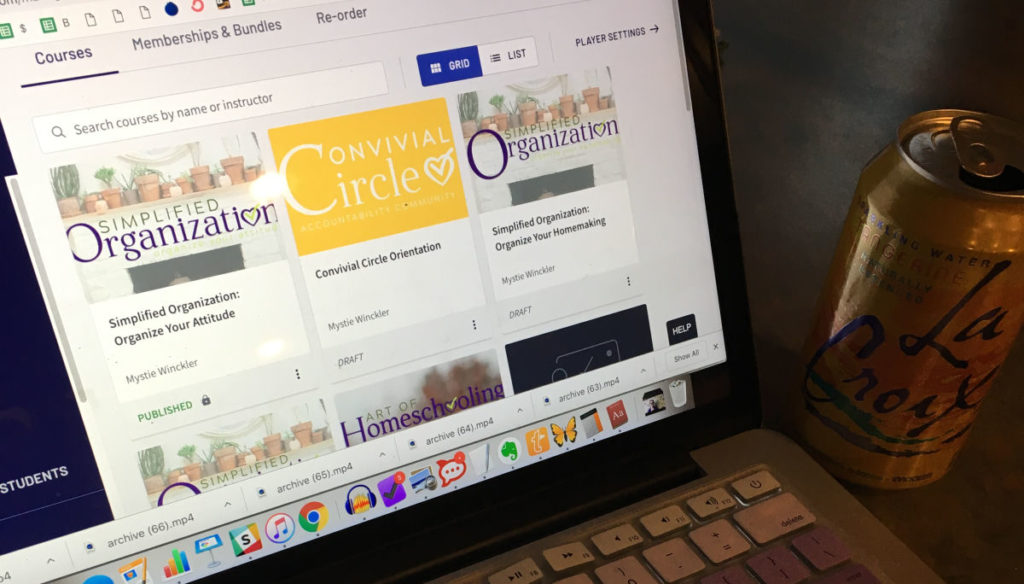
You’ll be hearing more about it in the next few weeks, of course, but we already had a beta opening to a select group and over 100 women are already inside membership (so the technical kinks are being worked out). Now we’re ready to throw wide the door.
November 2018 – speaking, planning, purple, freezer cooking, webinar
I suppose I can’t say something about how I can’t believe the month is over – every month. I’m getting to that point in life, though, where the eye-roll clichés just seem like truths that need to be stated.
We started out with a mild, warmish fall, but have now definitely hit the cold – but not cold enough for snow or ice. That’s something I am personally grateful for, even though my kids would love some snow.
1. Talking into a webcam is so much easier than speaking to a room full of people.
On podcasts and such I have heard people say that recording video is so much harder than speaking live, because there’s no response, there’s no feedback. Sarah Mackenzie has told me the same thing, but added the caveat – for me.
But not only have I been on the internet since there was an internet, I am an introvert. Not only am I an introvert, but I spent my middle school years shut in my bedroom lip-synching in front of the mirror to Amy Grant. The hardest part of speaking to a webcam is speaking – the format is my fave. People may be watching, maybe not, I’m in my pretend world doing my thing.
Not so much when you see the sea of people!
But in November, at Paideia Northwest, I survived my first “real” speaking engagement, spoke twice and – insanity of insanity – sat on a stage for Q&A next to Rachel Jankovic who is the one I’ve sent my questions to on the internet for years. Crazy world. Crazy times.
Melissa Cummings, the heart and soul and energy behind the conference, did a brilliant and beautiful job.
2. People just want to plan.
Me, too, but sometimes I get nervous about committing.
Nevertheless, I’ve been asked multiple times for a 2019 Program Calendar, and I now have one available for the first half of the year. It describes each of my courses and programs and includes dates for when they will be running.
What it doesn’t include (primarily because there wasn’t space), is the new Simplified Organization 6-month community coaching program I’m running twice in 2019: January-June and July-December. During the 6 months, you’ll receive extra support via email, text, and live chats to help you work through and apply the whole course. Yes, life happens and people will get behind, but the nature of the program allows for catching up or for picking up where you can – because we’re all moms, and we get it.
Any intentional work that you put into engaging with your life and your responsibilities will benefit you and those you serve, even if you don’t 100% finish the first (or second) time. Can I get an amen from those who have taken any of my courses?
3. My dental hygienist knows me.
When I got home and put away my dental swag bag items, guess what I found?
Last time I thought it was a convenient coincidence, but now I think she knows.
I wonder how she could tell…
4. Having parts of meals in the freezer is super handy.
I didn’t do any freezer cooking at our last break week, yet the freezer still supplied several meals over the last term. We almost never have enough leftovers to serve as another dinner, but we do sometimes have leftover parts and pieces.
At one point I bought 6 pounds of ground beef and cook it all at once, reserving half for another meal or two.
Thanks to two packs of next-day Costco rotisserie chicken leg packs plus a turkey, I have 5-6 gallon Ziplocks of bone broth for soup to pull out – and that’s after using some of the broth same day, too.
Our dinner last night was a soup made with leftover roasted root vegetables I had frozen and leftover pork roast I froze. Neither was enough for everyone for a meal, but it was enough to round out a soup.
Can I just say that I love soup season?
5. Workshop Replay
Yesterday’s free workshop on 3 Essential Home Management Tools You Need went very well, despite the abrupt ending. You can catch the replay here.
The summary: Getting organized is simple, but hard, and it’s maybe not what you thought it was when you started.
The replay would make great laundry-folding or dinner-making company.
October 2018 – hospitality, appointments, PEACE, hiatus, routines
October was crazy. Crazy like I have 5 school-age kids including 2 teens kinda crazy. Crazy like overcommitted kinda crazy. But the overcommitted bit should die down just in time for the holidays-type of overcommitted, so I think it will all work out ok.
Whew!
I’d toyed around with the idea of doing a 6 week holiday-prep challenge or program, but realized I would be along for the ride, barely following my own usual 6 week “interval” skeleton this year. So, if you want to pull together your own skeleton just in time, check out this series: An Interval Plan for the Holidays
(often I have most Christmas shopping at least settled, if not done, by the end of October, but this year I only have a start of a book pile and birthday presents ordered just in time for my November 2nd birthday girl)
1. Hospitality is uncomfortable.
October is the month for our church’s annual Women’s Retreat, and this year our initial speaker ideas fell through, then our backup idea fell through two weeks before, so we pulled together a Plan B for our 3 sessions.
My pastor has begun a sermon series on hospitality, and the small groups (including ours) are using his discussion questions weekly to discuss and apply.
Therefore, our backup plan was to pull together something on hospitality, and it was clearly what the Lord had for us in His good providence.
Hospitality is much bigger and broader than the assumptions I’ve operated under for years. It is stranger-love, but most of the hospitality I extend has been people-like-me-love.
Perhaps the last 15ish years we’ve spent inviting people over has only been baby step warmups to real hospitality.
Without despising the days of small beginnings, we can also look forward with hope and trust in being stretched into more maturity and more obedience.
If you’re interested, you can find the sermon series (still in progress) on our church website here.
2. Afternoon commitments are a bigger interruption than they appear.
When asked recently about how our school year has been, I commented that I felt like we’d turned into crazy people with our outside-school commitments. Then I paused and realized the only thing we’d added was Speech Club.
Now, albeit NCFCA Speech is a fairly big commitment, that didn’t seem to explain my sense of my time being overcommitted.
Next time I looked at my calendar, I realized the sense was not from extra academic or extracurricular activities, it was from appointments!
First, I had forgotten to count my oldest’s driver’s ed class, which took 7 hours a week for 6 weeks (and it now done, praise the Lord!). I didn’t think that made a big difference in my time, because it’s just a drop off and pick up about 10 minutes from our house.
However, it’s a drop off right in the middle of the afternoon when I’m normally hitting a groove after a break, so 3 days a week there was no groove.
Then 3 days a week Matt or I also needed to pick him up at 6, which meant dinner was later and the evenings felt off.
On top of that, I’d scheduled eye doctor appointments and next time I’ll remember to give the receptionist only weeks available during our longer Nov/Dec or June breaks, because not only did we have to go to the eye doctor twice (because they couldn’t fit all of us in the same day), but then there was an extra trip to Costco to fill the prescriptions, and then trips to also get the glasses as they arrived (at least it was Costco and it counted as a milk-run, too).
Then the kids’ last dentist appointments (always made during our longer breaks) revealed that Jaeger needed an orthodontic evaluation, so I took him in for an evaluation during one of Hans’ appointments. Of course, that means more appointments were added to the schedule – one of which was for me to finally fix my permanent retainer band.
I am very grateful that none of these appointments require much travel time. We live very centrally in town. And most of these appointments themselves did not take much time. On the calendar it really didn’t look that bad.
However, there is collateral effect to appointments, to breaking up our day with comings and goings. My time has felt more fragmented because there have been very few stretches of time at home and many there-and-back-again trips.
It’s not like there’s a solution. Orthodontist appointments come when they are needed, not when we schedule breaks. But I need to remember to budget not only the time for such appointments, but also budget for the productivity toll that accompanies them.
3. Pam’s PEACE plan is practically perfect in every way.
If you watched our Scholé Sisters online retreat in September, then you probably remember Pam’s “mother’s morning basket” acronym: PEACE.
If not, you can still find it here.
I had helped her with the brainstorming portion of that acronym and so started to put it into practice more systematically myself before the retreat, but her development of it in her talk hit a home run and I returned home determined to make it a regular part of my early mornings (I am usually, but not always, an early riser).
Here’s how the flow goes:
- Pray – this includes Bible reading
- Engage – read a moderate or stiff book, even just a page or two
- Align – what I have called “prep sheets” or “focus cards”: reading a short verse, motto, or quote to align attitudes and actions to truth
- Commonplace – copy a quote or two into your commonplace reading journal
- Exercise – increase energy and blood flow to the brain with even a short burst of exercise
Now, the great thing about this routine is how flexible it is. It could easily take 2 hours total, but it can also be done in 20 minutes if you spend 5 minutes in each section, which is enough to jumpstart your mind, heart, and body for the day.
Inspired by Daw Garrett, I rearranged my commonplace notebook to follow the acronym so I can just flip to the next thing quickly and easily.
4. I need to cut some things for now.
So, I think I mentioned I’ve felt my time and attention are fragmented and my mind and calendar are overcommitted? Yes.
That does have effect in my housecleaning, in my meals, and in my following through with personal goals (like health and reading), but it’s not good for those to go first.
My online “life” is supposed to be the overflow part: the topic and engagement keeps me personally engaged in the good, real home life and feeds my personality’s need for projects. But it’s supposed to be the first area to be cut when time runs out.
So, the Convivial Homeschool and Simplified Organization audio blogs suffered a halting 12th season and they are now on hold until January.
I have enough blog post ideas to publish 4 or 5 times a week the rest of the year, but I have it pared back to 2 per week – I won’t even try for more. Usually I try for 3-4 and then end up publishing 1-2 or zero anyway.
And, other ideas have been axed, at least for now. I have a backlog of ideas and outlines for Instagram posts and stories and lives. I have a running list of things I could do or would like to do that just need to stay on that list without being acted on.
It’s all good. It’s all practice. It’s all actually staying engaged and living out what I know and write about:
Roll with the punches. Make decisions according to vocation (that’s a blog post topic that survived and will be ready next week). Trust God’s providence with your time, attention, and resources. Stay cheerfully attentive.
5. Routines are the real source of magic.
So amid the appointments and the weekend away and the extra little tasks and the normal load and all, I keep returning to one conclusion: When I keep up with my basic morning and evening routines as bookends to the day, I can handle rolling with the punches and the muddle the rest of the day between those bookends.
So, I had already promised one more round of Sweep and Smile this year, November 3 (kickoff chat is the 1st, though!) through December 14. Instead of doing the typical whole-house evaluation and practice we have done during Sweep and Smile, this round will focus only on the morning and evening routine (including EHAP (link) as an evening routine).
What I have heard over and over again from participants is that what made the real difference was the morning and evening 15 minutes to tackle the bare minimums. Being consistent, even with just 5 minutes in six key tasks (possibly not even completing them, just working at them for 5 minutes), snowballs. Progress adds up, even when we don’t finish what we’d hoped. Consistency breeds consistency, and we learn that staying up on the basics is all we needed for sanity – we didn’t actually need a perfectly clean house like we’d been aiming for before.
September 2018 – Cindy Rollins, inspection, menu plan, driver’s ed, True pack
Wow – time flies when you’re….busy. Ha! This has been a more action-packed school year than we’ve ever had before. People told me that happened with teens, but I didn’t believe them.
Those experienced moms, people. They know what they’re talking about. Listen, even if you don’t like what they’re saying.
1. Cindy Rollins is the real deal.
Speaking of experienced moms to listen to, Cindy Rollins is high on that list. The highlight of my September was not only meeting her in person and hugging her, thanking her face-to-face for the time she spent thinking and reading “in public” for the benefit of us younger moms, but even hanging out with her over the weekend – being known by Cindy and treated as a friend.
Of course, she also referred to us as her middle-aged moms now. She said we aren’t really young moms anymore. I suppose that was a reality check as we realized how long it’d been since Brandy and I back-and-forthed in her blog comments (about 10 years), but maybe we could also look at it like a graduation to the next phase.
Teens certainly are a new phase, but once again Cindy is a shining example of humbly walking the one that comes next: launching children and praying for adult children. That seems as far away now as teens did back when I found Cindy. But given another 10 years, we’ll be there.
I’m so thankful God gives us community, gives us one another. He gives parents, a local church body, and also other people along the way so that we’re not on our own and we don’t have to make it up as we go along.
Even if you don’t like what older moms say, even if you’re pretty sure the way you’re doing things will result in different outcomes – listen to wisdom, treasure things up and ponder them in your heart.
2. Inspect what you expect. Every. Single. Time.
Speaking of other wisdom gained by moms who went before me – I had to relearn this one myself again this month: Don’t expect what you don’t inspect. Or, Inspect everything you expect.
I thought I already knew it. But I also thought that having won the battle to not check work off that hadn’t been done before, we could move on and spot-checking would be sufficient. Work was left undone, though checked off, and it was not a new student needing to learn the lesson, but the same student, again, and not even for only the second time.
If you have an xSTJ student, that is true – you can spot check and trust and be ok. For most students, however, we need to trust, yet verify. It’s a blessing to them, really. The heart is deceptive and the conscience easily soothed – I speak as one experienced on the student side of this problem, too.
P.S. – the above student is working diligently (with me at her elbow) and is not the culprit. Passive tense used to protect the guilty.
Check kids’ work. Check even the responsible teen’s work. If you aren’t seeing it, it’s likely not actually being done.
Don’t flip out when you find that to be the case. It’s totally normal and it’s our responsibility as the parent to be attentive.
Apologize for not checking, then make sure the work gets done at the expense of free time and freedom that might otherwise have been, had appearances matched reality.
That’s your fair warning – there’ll be a blog post on the topic later, don’t worry.
3. A themed menu plan is a lifesaver.
I have been menu planning for 6 weeks at a time for over a year now and it’s awesome.
I have had my menu planning on autopilot, basically, for some time now and I can testify how helpful it is.
At first, I only had 2 meal-themes repeated weekly: Monday is chicken pieces and Saturday is hamburgers in yardwork season and baked potatoes in winter.
Turns out, though, there are more than two dinners every week, and dinners were simple only to the extent they required no daily decision-making, at least not decision-from-scratch.
So I extended my themes.
Monday – chicken
Tuesday – pork or sausages and mashed potatoes
Wednesday – rotating theme each term, but usually crockpot or Instant Pot options
Thursday – tortilla meal
Friday – pasta or potato hash
A template like this not only makes menu planning 6 weeks at a time a breeze, but also makes it easy to know what to do in the morning. Mondays I pull chicken out of the freezer. Tuesdays I pull potatoes onto the counter and after lunch find a child to scrub them (some kids even peel them!).
Pam can walk you through getting this kind of planning template up and running. I’m just here to testify that it makes homeschool days less exhausting.
4. Drivers’ Ed requires a lot of time.
My oldest started drivers’ ed this month. I haven’t been driving with him yet – he’s still under his father’s tutelage. When Matt says he can drive places, then I take another piece of Cindy-advice and no longer drive him but let him drive me (it was a “raising sons” piece of advice she gave while she went through this phase). Personally, I don’t mind being chauffeured at all, but from all accounts I might feel different next to a teen driver. Ha! No doubt.
So, 7 1/2 hours a week in class, plus several 2-hour drives, plus needing extra driving practice out with Dad – this is a rather intense activity! As, I suppose, it should be.
5. True Grapefruit packets help me drink more water.
My friend Kirsti introduced me to these. Have you seen them? There’s True Lemon, True Lime, True Grapefruit, True Orange – they’re just little packets of flavor crystals without artificial sweetener (as long as you avoid the “ade” versions).
Cheaper than LaCroix, they add a zing in the water that encourages me to drink more – which is always helpful.
I shouldn’t be surprised anymore, but I still don’t always follow through on my knowledge: A big glass of water goes a long way to powering through an energy slump or overcoming a headache.
August 2018 – notebooks, lesson plans, IG, habits, superzoom
Before moving forward, it’s always best to look back and evaluate. Yet when we evaluate, it’s almost always with an eye focusing on what we didn’t like and what we didn’t do.
Let’s look back over the previous month and think about what we’ve learned, so we can take those lessons and move forward into fall.
Share what you learned in the comments!
#1 – Blank half-sized notebooks are the perfect portable brain dump vehicle.
When my friend Sarah’s new book, The Read-Aloud Family, came out earlier this year, she sent me a copy with a book bag and a cute little spiral notebook with her book cover design as the cover and full of 50 blank pages.
I’ve been carrying that little notebook around and it’s been my favorite brain dump vehicle to date. The size is perfect, the blank pages are perfect, and the capacity is perfect. I can slip it into my purse; I can have it open on my small desk; I can flip through it quickly.
I have always been more of a lined-pages person, so I was surprised how much I was drawn to the blank pages of this notebook. But for brain dumping new projects, details to be taken care of, new schedules and contingencies thereof – the blank page freed up my mind to get down anything, even if it wasn’t linear reasoning.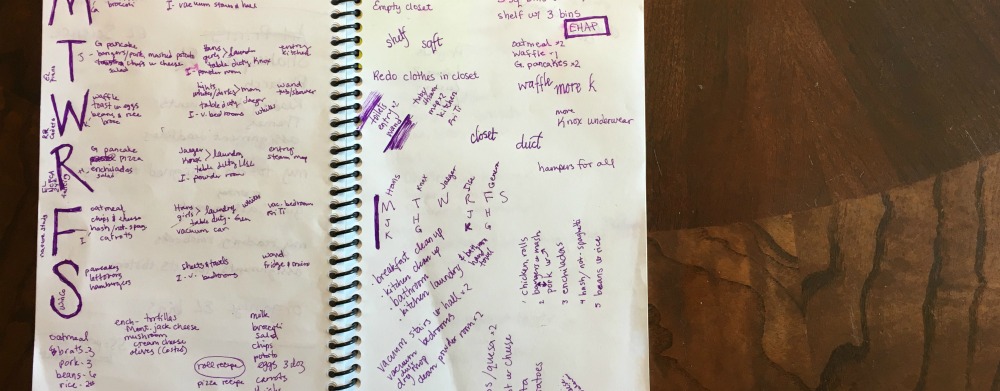
#2 – Lesson plan lists are worth the effort.
I have never been this late in getting my school planning done. I was wrapping up the last bits of the plan the week my classes began – where other people come to our house to join us in lessons. Eek!
But it’s so worth the time to get those plans listed out all at once for the year. I always underplan, planning for fewer weeks than we have scheduled on the calendar, knowing there will be sick days or other issues, but then when we’re in the middle of an average homeschool week, I do not need to get into the planning zone. I can stay in the doing zone, opening up Evernote and grabbing my file box and just starting, even if it’d been a crazy morning or even if I don’t feel 100%.
Taking the time to set things up so they are easy to open-and-go is so worth it. Planning and doing are completely different sorts of mindsets to be in, so chunking them, batching them, is an efficient way to conserve energy. Do the planning. Get it done. In the midst of the week and the term, just keep going in doing mode without worrying about what it is you should be doing next.
Pam’s procedure charts are a great hack that have been a bonus help this year, too.
#3 – Instagram issues
So I’ve been trying to be a bit more regular with Instagram Stories (which expire after 24 hours) and Instagram Live (which also expire after 24 hours but can be longer) and Instagram TV (which can be up to 10 minutes and don’t expire). Back in the day Periscope helped me get comfortable talking, and I was not necessarily sad to see it drop off in popularity. But Instagram is fun and sometimes a quick video chat is the best way to deliver a message.
I saved my IG Live from last week on YouTube. You can watch it here:

I was going to put it on IGTV, but it turned out to be too long. Oops.
Do you like stories, live, and/or tv on IG? I am trying to figure out what people like and would prefer watching.
Do you have topic ideas for me? I have a running idea bank going; you can help me add to it. Just leave a comment with your IG feedback and your ideas!
4 – A new school year needs old habits.
We often think of needing new habits and of breaking bad habits. When we think of “old” habits, it’s probably negative. And that’s probably because we all do have so many old bad habits.
But you know what makes the new school year actually smoother and simpler? Old habits. Good habits that are old.
When we’re already starting off so many new practices, trying to add in extra good habits is a sure way to hit the wall in overdrive.
So why are we doing Humble Habits starting the first week in September?
Because I’m guessing most of them will tap into some old habits that need shoring up, not complete renovation.
Because if prayer and smiling and a good attitude aren’t habits now, all those best laid school plans are doomed. Sorry.
But habits shouldn’t be things that take a lot out of us, even at the building point. Too often what we try to build when we want a habit is actually a whole routine – a whole combo set of multiple practices that is hard to master, and therefore impossible to actually make a habit.
You form a habit by starting small and securing that one small action by repeated practice.
So we won’t be trying to build a 30 minute devotional prayer life before the kids get up. We’ll be posting an index card with a Bible verse to pray in a highly visible spot and training our attention to stop, notice it, and pray it.
It’s clear. It’s small. It doesn’t take will power. It provides a quick win.
On the basis of quick wins, we move forward, better able to build more into our life because we’re building the identity (by taking the actual action, multiple times a day) of someone who prays.
Wanting to start the day with quiet prayer time is not as powerful as stopping and praying for 30 seconds an hour or two into your day. Action over perfection.
Humble Habits starts Friday with a kickoff chat!

I’d love for you to join us.
5 – Superzoom has superpowers.
So I had a child who was grumpy and in the slough of despond over his math errors he was having to correct. He didn’t want to. He thought corrections would take forever, ruin his day, and be a stupid waste of life.
I was “helping” him, which basically meant sitting next to him keeping his attention on target against his will. I was not giving him the answers, so I was told I was not actually helping him.
So I was going to snap a real day in the life shot and decided to try out the superzoom option in Instagram. It wasn’t focused on the fusser, who didn’t want his photo taken, but on the culprit, the math page. I didn’t even realize it would, by default, add music to it.
But then I played it for my troubled math student, and the choppy zoom in on the villainous math page with an ominous Du-Du-DUN soundtrack made him laugh, and that was enough to get him out of his funk, turn us into teammates again, and make him into the hero defeating his errors.
It was a total fluke, but it made me start to wonder how else I could surprise my kids with laughter over their situation. Laughter is good medicine. Superzoom to the rescue.
July 2018 – budgeting, summer term, speaking, Work the Plan, anniversary
here are 7 things I learned in July (because we should, you know, always be learning and growing):
#1 – Budgeting is actually worth it
I have always been a bad budgeter and the point of weakness in our various attempts over the years. “Spend less than you make” and put any extra money on the house has worked for us for the most part.
But last year we paid off our house (woohoo!) and after saving to buy a vehicle big enough for our tall kids and a Costco trip at the same time, my husband brought up the dread topic: budget.
This time, however, he had a new plan, and it has worked like a charm: We’re using the You Need A Budget (YNAB) app.
We’ve tried the cash envelope system and I didn’t like it. I didn’t like carrying around the cash and I never did write down entries every time I spent money, so the cash in the envelopes was never exactly the amount I thought probably should be in there. And when you need milk, you need milk, so all the envelopes were subservient to the grocery bill.
But YNAB is like an envelope system app so that I can use my debit card everywhere and anywhere and have an available at-a-tap record of where the money went PLUS the same budgeting workflow as an envelope system.
There have been 3 keys to our success this time around:
- We actually have a budgeting meeting after each paycheck hits the account and we assign each dollar a name, just like Dave Ramsey says you should.
- We spent a month using the app as an “after the fact” tool. Instead of starting off by guessing (and I always underestimate) how much we needed in groceries, we just assigned all the receipts to grocery to get a tally for the month. Plus, waiting while monitoring with the app helped us work in recurring items we would have missed and that have stopped us from even trying before because our spreadsheets got too complicated. YNAB makes it easy to be flexible. After 3 months of budgeting now (after our diagnostic), I think we have a structure in the app that works for us. Going into it knowing we’d adjust as we go until it worked helped me remember to iterate and keep going rather than feel judged by the budget and want to toss it.
- I keep the app on the first screen on my phone, and whenever a new expense hits, there’s a notification icon. I don’t like notification icons, so I actually do go in and categorize expenses as they come up, and YNAB makes it pretty painless and maybe even fun. So it’s never an overwhelming upkeep.
Plus, when you set and meet goals in a category, it turns green. It’s pretty rewarding to go through and make it turn it all turn green when we sit down to budget.
The YNAB emails and tutorials are super helpful and made the process work for us much faster than if we’d try to make up our own way. I highly recommend reading the materials they send to help you get set up well.
Use this link to sign up and you (and I) get a free month of YNAB.
#2 – Summer Term is harder than it used to be
So this is week 4 of our summer term and this term has not felt as good as in years past.
Previously, we could start the day with Morning Time, like always, right after morning chores. Then everyone was free for the morning, and often we’d go do something at that point. After lunch, we’d work on our school for a couple hours, then there was still play time and chore time and reading time before dinner.
It’s just not working that way this year. Life changes, and I’m needing to roll with the punches.
With a span of older kids, there are varying levels and kinds and amounts of schoolwork needing to be done. The older boys are on swim team and gone during breakfast and chore time. Swim lessons means we’re not back home until 10, at which point people are hungry and wet and tired. It’s not really a great time to say, “Hey! Let’s do Morning Time!” Then my oldest wants to get his work done first, my second wants to put it off until later, and the others are unpredictable.
So, basically, we’ve done Morning Time twice in four weeks. Insert sad face here.
I thought after swim was over (this is the last week for everyone, yay!), we’d get to it, but then the younger three will have a VBS I wasn’t initially planning on and two weeks after that the older two will go to Debate Camp out of town.
So, this is what happens as kids get older and involved in various things. It’s just an adjustment to make, but I do miss our old summer terms.
Still, everyone’s made good progress already in math, the older boys seem to like the “learning journal” way I set up their written narrations this year, and Ilse and Knox are improving in their handwriting, too. So it’s not a loss, and I actually can’t just quit because I don’t like the flow like I’m tempted to do. It’s only 2 more weeks and then a break and then the normal flow of fall will begin.
Turns out, I’m ready for it.
#3 – I do speaking. Ack!
So, this is something new and unexpected.
I’ve met Melissa Cummings before, and it turns out that we have several friends in common, but I didn’t remember or know that when she first sent me an email last month.
She has a vision for a one-day conference/retreat for homeschoolers in the Pacific Northwest – and that doesn’t mean Seattle! It’s incredible. She wants to put on something awesome for homeschoolers on the east side of the state. We live in an area with lots of homeschoolers, but as those out in the far west, we tend to be independent and just do our own thing. She wants something that’s not a co-op or a commitment, but that will still bring people together for friendship, networking, connecting, and community.
Enter Paideia Northwest.
The first Paideia Northwest conference will be Saturday, November 10th in Spokane.
Adam Andrews and Rachel Jankovic will speak – and so will I. Crazy, huh?
Here’s Melissa’s description:
Paideia Northwest is brand-new on the scene in the Pacific Northwest, seeking to build bridges, encourage community, & create camaraderie
for regional Christian mamas who are raising & educating their children in the nurture, admonition, & wisdom of the Lord Jesus Christ.If you are a Christian homeschooling mother, or the Christian mom of kids in day schools or hybrids, Paideia Northwest was created to serve you.
If Spokane is a drivable location for you, click here to check out the info!
4 – Work the Plan needs a reboot.
Ok, so I’ve known this for awhile and put my head in the sand about it. But the time has come to meet the challenge head on.
Work the Plan needs some freshening up and some clarification. Revision, new videos, new checklists and cheat sheets are coming in August.
Watch your email – in a few days I’ll be sending a feedback form to Work the Plan members to help direct my revision efforts.
Work the Plan is supposed to help us plan from a state of rest, live from a state of rest. The keystone habits that transform our days, our months, our years – and our mindset as we move through them. Work the Plan is built to acknowledge that emergencies happen, that life is unpredictable, that the life of a mother is made of interruptions-that-are-the-point, yet we can still have a plan that helps us move forward surely, steadily, and smilingly.
Right now it’s a bit too discombobulated to do that effectively. So we’re going to give it a facelift and plenty of revision and make it even better.
5 – Saving the best for last: I married an amazing man 17 years ago.
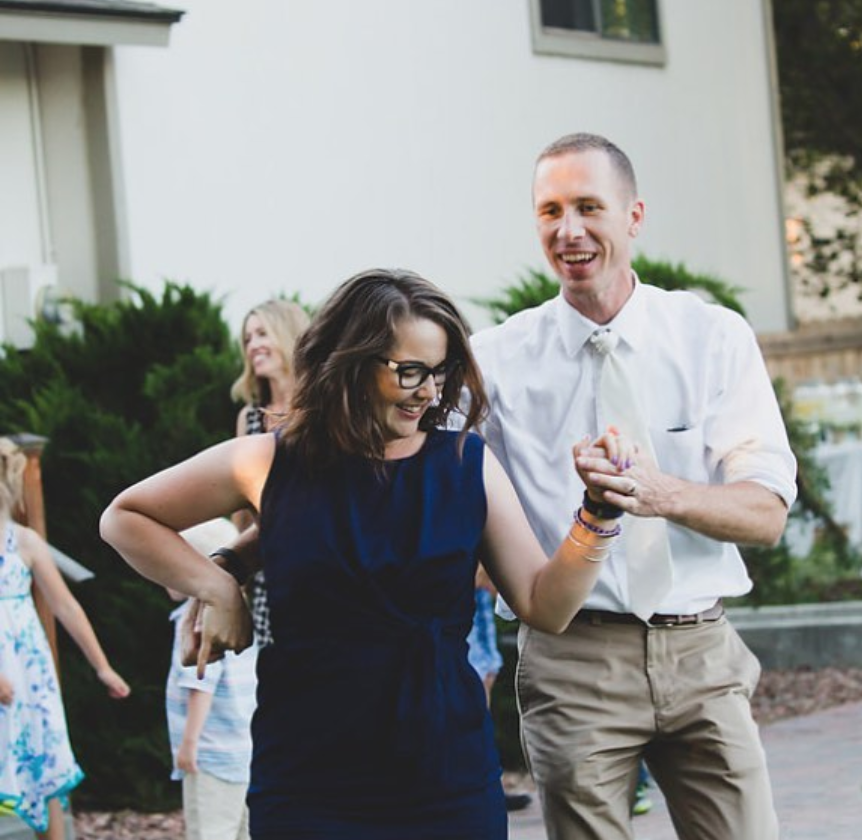
In July my husband and I celebrated our 17th anniversary. We went out to the fanciest restaurant either of us had ever been to, thanks to a gift certificate from his parents.
Here’s the story I told on Instagram to go with this fun photo of us dancing at my sister’s wedding in June:
Seventeen years and still having a good time! When we were seventeen years old, we took swing dance lessons…just because we were interested in learning, of course. I’d kissed dating goodbye, so we definitely were not a couple and not dating – only dancing. Our friends knew better, but we fooled ourselves for a year anyway. Now we’ve been married as long as we’d been alive at that point and we still swing dance at weddings. We make a great team (and not only because he does the dishes and the ironing).
(photo by Jordan Edens Photography)
